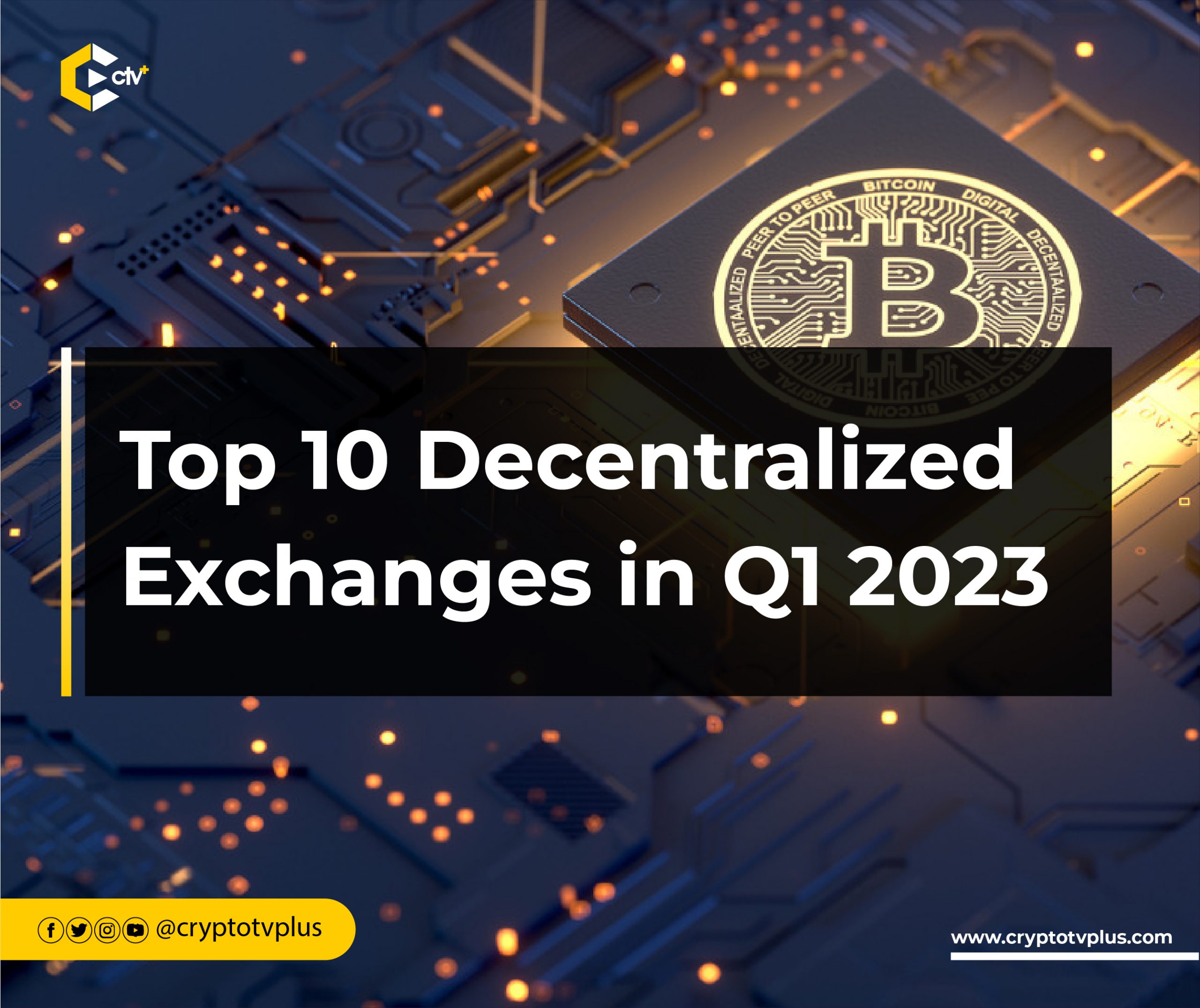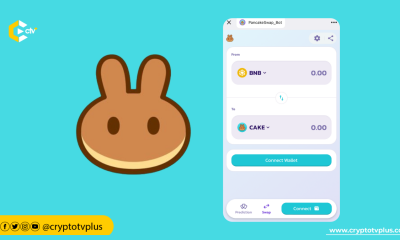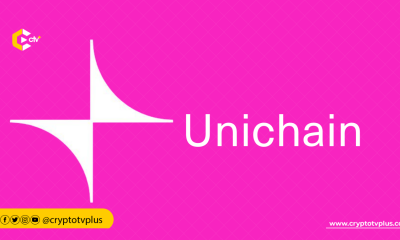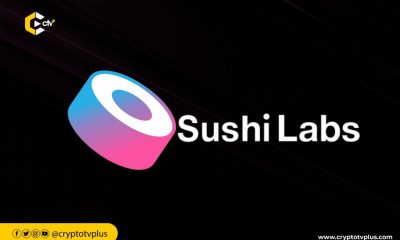Education
Top 10 Decentralized Exchanges in Q1 2023

The effect of market changes in Q4 2022 and Q1 2023 was visible in the figures traded on decentralized exchanges, especially that of Uniswap, which led the sector. Decentralized Exchanges are crypto platforms. DEXs are cryptocurrency exchanges that operate on a decentralized network, allowing users to trade cryptocurrencies peer-to-peer without the need for a central intermediary or custodian. They use smart contracts to facilitate transactions.
A report revealed that the trading volume on the top 10 decentralized exchanges (DEX) in Q1 2023 increased by 33.4% in Q1 2023. This is a list of the top ten platforms that were responsible for more than 80% of all transactions on decentralized exchanges:
Uniswap
Uniswap is a decentralized cryptocurrency exchange (DEX) built on the Ethereum blockchain. It was launched in November 2018 and is designed to allow users to trade Ethereum-based tokens without the need for an intermediary. It operates an automated market maker (AMM) system to set prices and facilitate trades, and users can add tokens to a liquidity pool by depositing an equivalent value of ETH and the token they want to add.
Uniswap also has its own token, called UNI, which can be used for governance and rewards. While the platform is not regulated by any external body, it processed more than 50% of all market share from DEXs from October 2022 until March 2023 and grew its market share to 72% at the end of March 2023.
Curve
Curve is a decentralized cryptocurrency exchange (DEX) designed specifically for trading stablecoins and other assets with low volatility. It was launched in January 2020 and is built on the Ethereum blockchain. Apart from the automated market maker (AMM) system it uses, there is a unique bonding curve mechanism, which adjusts the price of a token based on the amount of liquidity available in the pool.
One of the key advantages of Curve is its focus on stablecoins, which are becoming increasingly popular in the cryptocurrency space as a way to mitigate volatility and enable seamless transactions. Curve was next to Uniswap on trading volumes for DEXs from October 2022 and Q1 2023 accounting for 14% of $660 billion, 8% of $61 billion, and 9% of $94 billion trading volume in January, February, and March 2023, respectively.
Pancakseswap
PancakeSwap is a decentralized cryptocurrency exchange (DEX) built on the Binance Smart Chain (BSC). It was launched in September 2020 and is designed to allow users to trade a wide range of cryptocurrencies and tokens. It uses an automated market maker (AMM) system, similar to Uniswap and Curve, to provide liquidity for trades.
It also uses a unique liquidity provider (LP) farming mechanism, which allows users to earn rewards in the form of its native token, CAKE. In addition to trading, PancakeSwap offers a range of other features and services, such as yield farming and a lottery system. Pancakeswap, after Uniswap and Curve, had 5%, 7%, and 5% of the market share in January, February, and March 2023, respectively.
Dodo
Dodo is a decentralized cryptocurrency exchange (DEX) built on the Ethereum blockchain. It was launched in August 2020 and is designed to provide fast and efficient trading for both retail and institutional users. DODO uses a unique algorithm called “Proactive Market Maker” (PMM) to provide more efficient price discovery and lower slippage compared to other AMM-based DEXs.
DODO also offers a range of advanced trading features and tools, such as flash loans, custom order book trading, liquidity mining, and crowd pooling. Dodo accounted for 5% of $60 billion of trading volume in January 2023, 6% of $61 billion of trading volume in February 2023, and 4% of $94 billion of trading volume in March 2023.
Balancer
Balancer is a decentralized cryptocurrency exchange (DEX) built on the Ethereum blockchain. It was launched in March 2020 and is designed to allow users to trade a wide range of cryptocurrencies and tokens with customizable weights and ratios. Balancer is built as an automated market maker (AMM) system to provide liquidity for trades.
With the underlying technology, Balancer Protocol (BEP), Balancer provides more flexibility and control for liquidity providers. In addition to trading, Balancer offers a range of other features and services, including liquidity mining and a “Balancer Labs” program. 7%, 4%, and 3% of all trading in January, February, and March were respectively initiated on Balancer.
Sushi
SushiSwap is a decentralized cryptocurrency exchange (DEX) built on the Ethereum blockchain. It was launched in September 2020 and is designed to allow users to trade a wide range of cryptocurrencies and tokens. It uses an automated market maker (AMM) system to provide liquidity for trades, but also offers a range of other features and services, such as yield farming and a unique “Onsen” program.
It also has a unique governance system, where users who hold its native token, SUSHI, can vote on proposals and make decisions about the future development and direction of the platform. The platform is community-driven, and users can participate in governance and decision-making through holding and staking SUSHI tokens.
Sushiswap processed $1.2 billion in trading volume, $2.44 billion in trading volume, and $1.88 billion in trading volume in January, February, and March 2023, respectively.
Quickswap
QuickSwap is a decentralized cryptocurrency exchange (DEX) built on the Polygon network, which is a Layer 2 scaling solution for Ethereum. It was launched in February 2021 and is designed to allow users to trade a wide range of cryptocurrencies and tokens with low fees and fast transaction speeds.
It functions as an automated market maker (AMM) system. Quickswap, with a TVL of over $62 million, attracted the seventh most trading volume for DEXs in Q1 2023.
TraderJoe
Trader Joe is a decentralized cryptocurrency exchange (DEX) built on the Avalanche blockchain. It was launched in September 2021 and is designed to allow users to trade a wide range of cryptocurrencies and tokens with fast transaction speeds and low fees. Trader Joe operates with an automated market maker (AMM) system.
It also provides other services such as staking of Joe tokens, its native token, to earn rewards, yield farming, lending in partnership with Banker Joe, and trading of NFTs. Trader Joe was the eighth most used DEX in Q1 2023.
THORChain
THORChain is a decentralized cross-chain liquidity protocol designed to enable seamless and secure trading of cryptocurrencies and other digital assets across different blockchain networks. It was funded through an initial DEX offering (IDO) in July 2019 and transitioned to its single-chain in April 2021, and the multichain mainnet went live the same year.
THORChain uses a unique cross-chain bridging technology to allow users to swap assets across different blockchain networks, such as Bitcoin, Ethereum, Binance Smart Chain, and more. It is designed to be fully decentralized, with no central authority or single point of failure, and uses a unique “multisig vault” system to secure users’ funds. It also has a special incentive mechanism to encourage users to provide liquidity to the platform.
With support for 5,000 tokens over nine chains, a TVL of more than $115 million, and total trades of 11 million, Thorchain was named in the ninth position for DEXs that processed the most trading volumes in Q1 2023.
Jupiter
Jupiter is a liquidity aggregator on Solana that aggregates the best token prices across different decentralized exchanges by connecting all DEX markets and AMM pools together. It also dynamically splits trades into smaller trade sizes to get better prices for larger-size trades and trades with shallow liquidity across several exchanges.
Other key features include the automatic listing of new markets, token swaps in a single transaction without exceeding transaction limits, and an API for developers to access liquidity on Solana. It is at number ten for the DEXs that process the highest number of trades in Q1 2023.
Read also;
Stablecoins lost $6.2B: USDC & BUSD hit hardest, new contender emerges
Crypto Report: Liquid staking dominates DeFi in Q1 2023
























